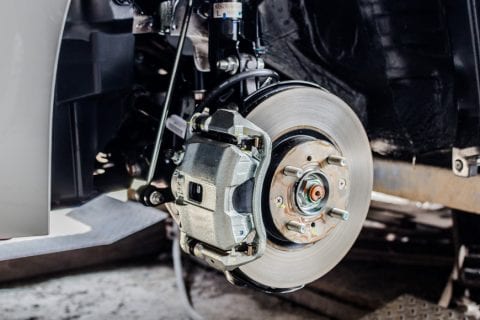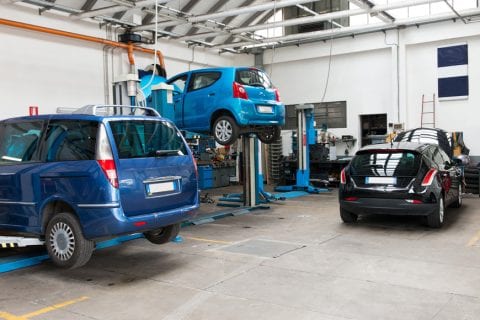Maintaining healthy brake and suspension systems will improve both the comfort and safety of your vehicle. Most people are familiar with the dangers of failing brakes, but the same applies to your car’s suspension system. Worn-out or broken parts can cause unsafe movement and even the loss of a wheel while driving.
Brakes
Your car’s brakes are one of the most important safety features. Worn or damaged brakes severely limit your ability to stop in the case of an emergency – which is why regular brake inspection and replacement is so important.
There are several indicators that let you know it’s time for a brake replacement:
- Squealing: Most modern brakes include a metal indicator that will make a loud squeal when it is time for new brake pads. If you hear the tell-tale squeal when you apply the brakes, it is time to schedule an appointment.
- Grinding: If you ignored the screeching, it might become a grinding or growling noise when you apply the brakes. If this is happening, your pads are likely totally worn down and your caliper is making direct contact with the rotor. This can cause expensive damage to the caliper and rotor – so get it checked immediately.
- Pulling: Uneven brake pads or contaminated brake fluid can cause your car to pull to one side when braking. Often, pulling can be corrected with a quick adjustment or a fluid swap.
- Brake Light: Most vehicles are equipped with a brake light that will let you know when there’s a malfunction in your braking system – if your dashboard brake light comes on, it is time to get your brakes serviced. But don’t count on the light to catch every problem.
- Vibration: Warped rotors will cause your brake pedal to pulse or vibrate when depressed. If you are experiencing regular vibration in your pedal, you should get your rotors checked as soon as possible.
- Slow Response: Your brakes should be responsive and easy to apply. A spongy pedal or slow response usually means that you’re in need of a brake service.
Suspension
Suspension problems can cause shaking, clunking, steering failure, and even catastrophic failure. If your suspension needs work, the first sign will be a pronounced shaking and bouncing as you drive. Other symptoms of a failing suspension system include:
- Steering wheel shake
- Clunking while turning
- Uneven tire wear
- Bottoming out your shocks
- Excessive lean during turns
Ignoring a suspension problem can have serious consequences. If your car is experiencing symptoms of a suspension failure, it is vital to get your vehicle inspected as soon as possible.


